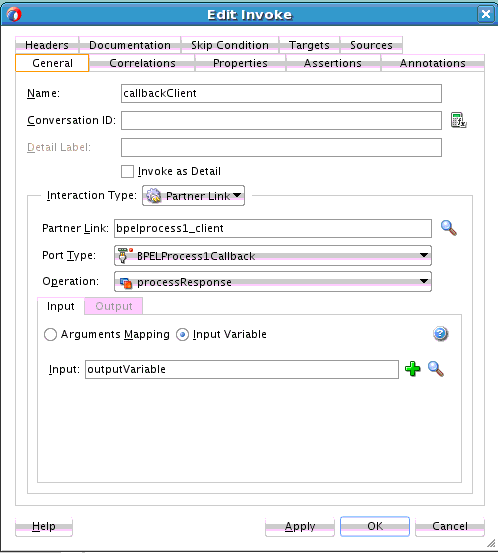Introduction to Activities
Activities are the building blocks of a BPEL process service component. Oracle BPEL Designer includes a set of activities that you drag into a BPEL process service component. You then double-click an activity to define its attributes (property values). Activities enable you to perform specific tasks within a BPEL process service component. For example, here are several key activities:
-
An assign activity enables you to manipulate data, such as copying the contents of one variable to another. Figure 4-7 shows an assign activity.
-
An invoke activity enables you to invoke a service (identified by its partner link) and specify an operation for this service to perform. Figure 4-8 shows an invoke activity.
-
A receive activity waits for an asynchronous callback response message from a service. Figure 4-9 shows a receive activity. A receive activity is also used when a process is started asynchronously through a partner link.
Figure 4-10 shows an example of a property window (for this example, an invoke activity).
The invoke activity enables you to specify an operation you want to invoke for the service (identified by its partner link). The operation can be one-way or request-response on a port provided by the service. You can also automatically create variables in an invoke activity. An invoke activity invokes a synchronous service or initiates an asynchronous web service.
The invoke activity opens a port in the process to send and receive data. It uses this port to submit required data and receive a response. For synchronous callbacks, only one port is needed for both the send and the receive functions.
For more information about activities, see BPEL Process Activities and Services.
For information about copying and pasting activities in the same project or between projects, see How to Copy and Paste Activities in BPEL Projects .
For information about editing activities in the Property Inspector, see How to Edit BPEL Activities in the Property Inspector.


